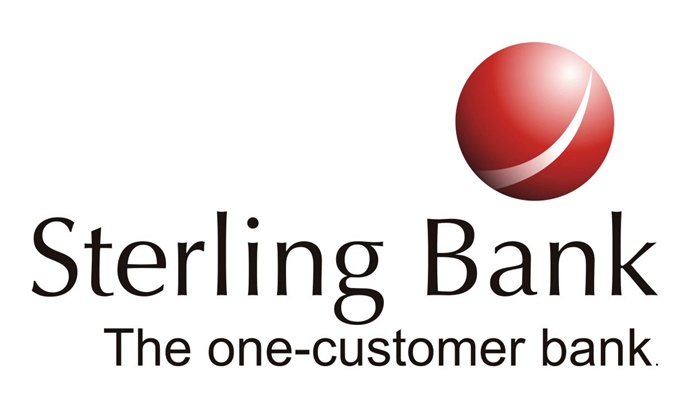Sterling Bank strengthens fundamentals amidst first-half challenges
- Eyes N35bn new capital in second half
Sterling Bank Plc showed steadiness and improved the intrinsic fundamentals of its businesses in the first half of this year as the Nigerian economy and the banking industry struggled with fiscal and monetary challenges that saw inflation and foreign exchange at their worst in many years.
First-half report and accounts of Sterling Bank Plc for the period ended June 30, 2016 released at the Nigerian Stock Exchange (NSE) showed that the Bank continued to benefit from its credit risk management and efficient cost management as the proportion of non-performing loans dropped further to 2.8 per cent by June 2016 as against 4.8 per cent recorded in comparable period of 2015 just as the Bank concludes plans on its N35 billion tier 2 capital raise.
It must be noted that the 2.8 per cent ratio of non-performing loan is far below the industry threshold of five per cent and represents one of the best in an industry challenged with non-performing loans.
The report also showed that the Bank’s cost of funds also declined to 4.7 per cent as against 5.9 per cent, underlining the increasing success of the Bank’s retail banking strategy and the preference by depositors for its brand.
Key extracts showed that net interest income increased by 31.9 per cent to N25.6 billion in first half 2016 as against N19.4 billion in corresponding period of 2015. This was driven by a 22 per cent decrease in interest expense resulting in a 1240 basis point improvement in net interest margin to 61.7 per cent. Non-interest income however reduced from N15.2 billion in first half 2015 to N8.5 billion in first half 2016. Altogether, net operating income increased marginally from N30.2 billion to N30.5 billion. Its profits before and after tax stood at N4.4 billion and N4 billion respectively.
The balance sheet of the bank continued to improve. Net loans and advances increased by 36.5 per cent to N462.3 billion largely driven by foreign exchange revaluation. Also, customer deposits increased to N627.9 billion from N590.9 billion. Total assets excluding contingent liabilities increased by 20 per cent N959.2 billion by June 2016 as against N799.5 billion recorded by December 2015.
The results came on the background of general depression in earnings in the financial services industry and several other industries due to a period of sustained deterioration in the domestic economy during the first half of 2016. The economy, which has been posited to be in recession, was impacted by depressed commodity prices, continued sabotage of oil assets, weak investor confidence and a slow convergence of both monetary and fiscal policy.
Managing Director, Sterling Bank Plc, Yemi Adeola, noted that the bank has remained irrepressible as demonstrated by the strength of its core business.
According to him, the bank prioritized improvement in asset quality which was reflected by a 70 basis point decline in the non-performing loans and a 100 basis point reduction in cost of risk. Cost of funds also declined by 120 basis points to 4.7per cent. This was in spite of the foreign exchange liberalization policy, the attendant liquidity squeeze and the rising inflation rate which peaked at 16.5 per cent in June 2016.
“The bank showed deeper pliability through the re-affirmation of its investment grade ratings at a time when corporate and sovereign ratings were under downward ratings pressure. I am pleased to report that we have successfully migrated to a world-class CORE banking application, which will enable us to better manage a significant uptick in customer base and ensure the required flexibility to deliver unique services across business segments,” Adeola said.
He added that the bank has taken steps to improve staff productivity by introducing a flexible work environment to achieve its goal of building a great workplace and reduce operating expenses.
“As we look to the second half of the year, we remain committed to our plan to conclude our N35 billion tier 2 capital raise, prioritize operating efficiency and ensure moderate loan growth; while continuing to diversify funding sources as our retail banking strategy gains traction. Although, some of the macroeconomic challenges witnessed during the first half of the year will persist, we expect improvements in the Nigerian economy, driven by the implementation of the budget and other fiscal palliatives introduced by the Federal Government,” Adeola assured.





The information is amazingly important
Petr Cech http://accordsolutions.in/Activity-Feed/My-Profile/UserId/71247
Terrific Web site, Stick to the great job. Many thanks!.
Luis Figo http://webtry.idc188.cn/comment/html/index.php?page=1&id=55556
Great webpage you possess in here
Raul Gonzalez http://www.sneaktag.com/ads/hunter-hayes-will-consider-most-things-for-love-in-new-i-want-crazy-music-video/